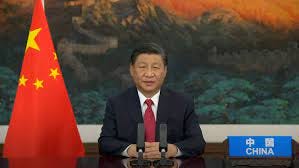Xi Jinping proposes Global Development Initiative
The President of China seeks win-win cooperation
In his address at the 76th Session of the United Nations General Assembly on September 21, 2021, Xi Jinping, President of the People’s Republic of China, declared that the peoples of the world, more than ever before, desire peace, development, equality, and social justice, and they are determined more than ever to attain these hopes through win-win cooperation. With this declaration, Xi gives emphasis to the cooperation of the governments of all regions of the world in China’s foreign policy of developing mutually-beneficial trade, as the foundation for a sustainable world order, an alternative to a neocolonial world-system that has been constructed on a colonial foundation and sustained through imperialism.
Xi further stressed that winning the battle against COVID-19 must have the highest priority, and a science-based approach is necessary. He noted that China this year is donating 100 million doses of vaccines t…



